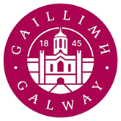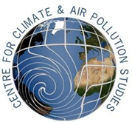-
Courses

Courses
Choosing a course is one of the most important decisions you'll ever make! View our courses and see what our students and lecturers have to say about the courses you are interested in at the links below.
-
University Life

University Life
Each year more than 4,000 choose University of Galway as their University of choice. Find out what life at University of Galway is all about here.
-
About University of Galway

About University of Galway
Since 1845, University of Galway has been sharing the highest quality teaching and research with Ireland and the world. Find out what makes our University so special – from our distinguished history to the latest news and campus developments.
-
Colleges & Schools

Colleges & Schools
University of Galway has earned international recognition as a research-led university with a commitment to top quality teaching across a range of key areas of expertise.
-
Research & Innovation

Research & Innovation
University of Galway’s vibrant research community take on some of the most pressing challenges of our times.
-
Business & Industry

Guiding Breakthrough Research at University of Galway
We explore and facilitate commercial opportunities for the research community at University of Galway, as well as facilitating industry partnership.
-
Alumni & Friends

Alumni & Friends
There are 128,000 University of Galway alumni worldwide. Stay connected to your alumni community! Join our social networks and update your details online.
-
Community Engagement

Community Engagement
At University of Galway, we believe that the best learning takes place when you apply what you learn in a real world context. That's why many of our courses include work placements or community projects.
Townair
TownAir Project
Welcome to the TownAir (Sources of PM2.5 in the Air of Irish Towns) project website.
TownAir is a groundbreaking initiative focused on identifying and quantifying the sources of particulate matter (PM2.5) that affect air quality in Irish towns. By using state-of-the-art techniques and working closely with local communities, our goal is to better understand air pollution and support the development of effective strategies to achieve cleaner air for everyone.
About the Project
Why is TownAir Important?
Air pollution is recognized as the single greatest environmental health risk worldwide, causing over 7 million premature deaths annually according to the World Health Organisation (WHO). In Ireland alone, air pollution is responsible for approximately 1,300 premature deaths each year, with particulate matter (PM2.5) being the primary pollutant of concern.
PM2.5 originates from a variety of sources, including domestic heating, traffic, agriculture, industry, and natural sources such as sea salt and pollen. The presence of PM2.5 in the atmosphere can lead to severe health impacts, including respiratory and cardiovascular diseases. Furthermore, understanding its sources is crucial for designing targeted policies and mitigation strategies to improve air quality.
The TownAir project is particularly important because small- to medium-sized towns in Ireland face unique air quality challenges, often different from those in urban or rural environments. By focusing on towns with known air quality issues, this project will provide detailed insights into pollution sources and trends, enabling effective local and national policy responses.
What Pollutants Will We Measure in TownAir?
To comprehensively identify the sources of PM2.5, the TownAir project will measure a wide range of pollutants using advanced monitoring techniques. These include:
- Particulate Matter (PM2.5): Fine particles that pose the greatest risk to health.
- Organic Matter (OM): Comprises a complex mixture of organic compounds from natural and man-made sources.
- Black Carbon (BC): Often referred to as soot, a component of PM2.5 resulting from combustion processes.
- Sulfate, Nitrate, and Ammonium: Key components of secondary aerosols formed through atmospheric chemical reactions.
- Metals (e.g., Zinc, Copper, Iron): Specific markers for sources such as non-tailpipe vehicle emissions, road dust, and industrial processes.
- Nitrogen Oxides (NOx) and Sulfur Dioxide (SO2): Gaseous pollutants that contribute to the formation of secondary particulate matter.
Measurement Approach
The project will employ a combination of advanced techniques to ensure comprehensive coverage of pollutants:
- Online Aerosol Mass Spectrometry (AMS): Provides real-time chemical composition of non-refractory PM2.5, OM, sulfate, nitrate, and ammonium.
- Filter-based sampling: Collects daily samples for laboratory analysis of refractory materials such as metals using X-Ray Fluorescence (XRF).
- Aethalometer: Measures BC concentrations.
- Low-cost PM2.5 sensors: Deployed in a network to monitor spatial variations in pollution across towns.
These techniques will enable a detailed source apportionment analysis, helping us to identify specific contributors to PM2.5 pollution, such as residential heating, traffic emissions, and natural sources.
We invite you to follow our progress and stay updated on the TownAir project by visiting this webpage regularly and engaging with us on social media (X account: https://x.com/mace_head) using the hashtag #TownAir. Together, we can work towards cleaner air and healthier communities.
TownAir Project Partners
This research project will be carried out by researchers based at the Centre for Climate and Air Pollution Studies, Ryan Institute, University of Galway in collaboration with the Centre for Research into Atmospheric Chemistry (CRAC) of the University College Cork (UCC). The project is planned to take place from March 2024 – March 2027.



Funding Agency
This project is funded by the Environmental Protection Agency (EPA) Ireland under the ten-year high-level framework EPA Research 2030 & the ‘Delivering a Healthy Environment’ Research Hub’ (Project Code [2023-HE-1200]).



Contact Us
We welcome inquiries about the project. Please contact:
Dr. Vaios Moschos
Research Fellow
Dr. Jurgita Ovadnevaite
Associate Professor
School of Natural Sciences, Physics, University of Galway
Centre for Climate and Air Pollution Studies, Ryan Institute
University Road, Galway H91 CF50















